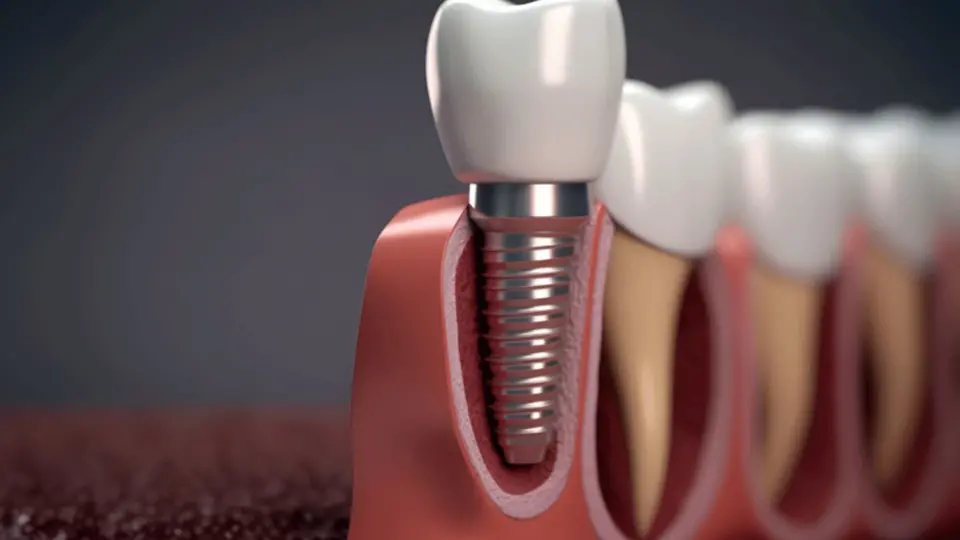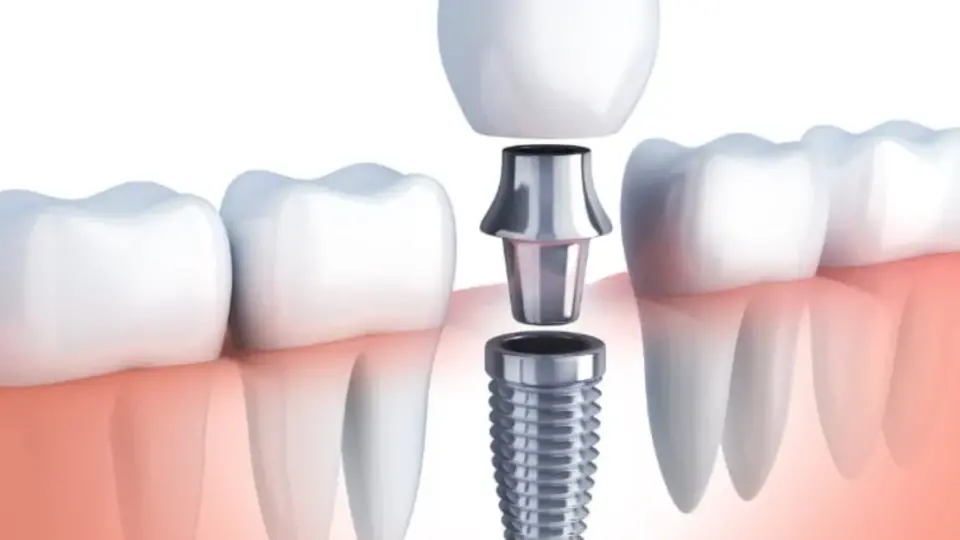Choosing between full and partial dentures can be a significant decision when restoring your smile. Understanding the differences, benefits, and potential drawbacks of each can help you make an informed choice that best suits your needs.
What Are The Main Differences Between Full And Partial Dentures?
Understanding the key differences between full and partial dentures can help you decide which option best suits your dental needs.
Full Dentures
- Purpose: Full dentures are designed to replace an entire arch of missing teeth in the upper or lower jaw.
- Material: They are typically made of acrylic, which provides a durable and natural-looking solution.
- Fit: Full dentures fit snugly over your gums, creating a seal that holds them in place. This snug fit is crucial for comfort and functionality.
- Function: These dentures are ideal for individuals who have lost all their teeth in a particular arch due to decay, gum disease, or injury. They restore the ability to chew, speak, and smile confidently.
- Maintenance: Full dentures are removable for easy cleaning and maintenance. Regular cleaning is essential to prevent gum infections and maintain oral hygiene.
Partial Dentures
- Purpose: If a few teeth are still visible, a partial denture may be the best option. When a tooth is lost, they are there to fill the void.
- Material and Structure: A partial denture is a set of false teeth that rest on a plastic base—typically gum-colored or pink—and are held in place by a metal framework. This framework helps hold the denture securely in place.
- Stability and Support: Natural teeth provide additional stability and support for partial dentures. They rely on these existing teeth to anchor the denture, offering a more secure fit than full dentures.
- Function: Partial dentures are suitable for those who do not need to replace an entire set of teeth but need to fill gaps. This helps maintain the alignment of remaining teeth and prevents them from shifting.
- Maintenance: Similar to full dentures, partial dentures are removable for cleaning. Proper care is necessary to keep dentures and natural teeth healthy.
Choosing between full and partial dentures depends on the extent of tooth loss and the condition of your remaining teeth. A dental professional at Palmetto Family and Cosmetic Dentistry can provide you with a personalized recommendation based on your unique oral health needs.
How Do I Know If I Need Full Or Partial Dentures?
Whether you need full or partial dentures depends on your oral health and the number of teeth you have lost. Full dentures may be the best solution if most or all of your teeth are missing or severely damaged. They offer a comprehensive approach to restoring your ability to eat, speak, and smile confidently.
However, partial dentures might be the better option if you still have several healthy teeth remaining. These allow you to retain your natural teeth, providing more comfort and a natural feel. Additionally, preserving your natural teeth helps maintain the structure of your jawbone and facial features, offering aesthetic and functional benefits.
An in-depth assessment by a dentist might help them tailor their recommendations to your unique needs. To choose the best course of action, they will look at your current dental health, your preferences, and the state of your remaining teeth.
Which Type Of Denture Is More Comfortable, Full Or Partial?
Comfort is a critical factor when choosing between full and partial dentures. While designed to fit snugly over your gums, full dentures can sometimes cause initial discomfort as your mouth adjusts to them. Over time, most people adapt well, but occasional adjustments by your dentist may be necessary to ensure a proper fit.
Partial dentures often offer greater comfort initially because they rely on your remaining natural teeth for support. This stability can make them feel more secure and reduce the likelihood of movement while speaking or eating. However, they may require more frequent adjustments to accommodate changes in your mouth and ensure they do not place undue stress on your natural teeth.
Both types of dentures come with an adaptation period, and the comfort level can vary from person to person. Discussing your concerns and preferences with your dentist can help you make a decision that aligns with your comfort needs.
What Are The Pros And Cons Of Each Type Of Denture?
Each type of denture has its own set of advantages and disadvantages. Full dentures offer a complete replacement solution, which can be life-changing for those who have lost all their teeth. They can restore your smile, improve your ability to chew, and boost your confidence. However, they can sometimes feel less stable compared to partial dentures, especially without the support of natural teeth.
On the other hand, partial dentures allow you to keep your healthy teeth, which is beneficial for maintaining jawbone structure and providing additional stability. They can be less invasive than full dentures since they don’t cover the entire gum area, which might be more comfortable for some users.
The downside is that partial dentures require your existing teeth to be in good condition to provide adequate support. Additionally, they can place extra pressure on your natural teeth, which might require more frequent dental visits to ensure they remain in good condition.
Full dentures are generally easier to clean since they are removed from the mouth, allowing you to brush them thoroughly. Partial dentures require just as much attention to cleanliness as natural teeth in order to avoid cavities and gum disease, so it’s important to keep up with your regular dental hygiene routine regardless.
In the end, it’s best to talk to your dentist about your options for dentures—full or partial—so they can advise you depending on your oral health, lifestyle, and preferences.
Dentures come in a variety of styles; picking the right one for you requires familiarity with the key distinctions between them as well as an evaluation of your specific needs and preferences, as well as an examination of the benefits and drawbacks of each.
Why Palmetto Family and Cosmetic Dentistry Is Your Best Choice for Dentures
Choosing the right dental practice for dentures is crucial, and Palmetto Family and Cosmetic Dentistry is the top choice for many reasons. Our team of skilled professionals has extensive experience providing full and partial dentures, utilizing the latest techniques and advancements. We prioritize personalized care, taking the time to understand each patient’s unique needs and creating customized treatment plans.
Our state-of-the-art technology ensures precise and comfortable denture solutions, with advanced imaging systems for accurate impressions and expedited processes. Beyond providing dentures, we offer comprehensive care, including routine check-ups and maintenance, to keep your dentures in optimal condition.
Our commitment to affordability means we offer competitive pricing and flexible payment plans. Full dentures range from $1,000 to $3,000, and partial dentures range from $700 to $2,500. We also work with various insurance providers to minimize out-of-pocket expenses. Choose Palmetto Family and Cosmetic Dentistry for exceptional denture care tailored to your needs.
Frequently Asked Questions
How Do I Know If I’m a Candidate for Dentures?
A person may qualify for dentures if they are missing a single tooth, multiple teeth, or a complete arch of teeth. Palmetto Family and Cosmetic Dentistry offers thorough dental exams that will help you figure out what’s best for your teeth. Full or partial dentures may be recommended after an evaluation of your oral health and a discussion of your requirements by one of our dentists.
How Long Does It Take to Get Dentures?
The process of getting dentures typically involves several appointments over a few weeks. This includes the initial consultation, taking impressions, trying on a fit model, and making necessary adjustments. The exact timeline can vary based on individual needs and the type of denture being fitted.
What Can I Expect During the Adjustment Period?
It’s normal to experience discomfort and soreness as your mouth adjusts to the new dentures. This adjustment period varies for each person but generally lasts a few weeks. Our Palmetto Family and Cosmetic Dentistry team will provide guidance and support during this time to ensure you adapt comfortably to your new dentures.
How Do I Care for My Dentures?
If you want your dentures to last as long as possible and keep your teeth healthy, you must take good care of them. We advise soaking your dentures in a denture solution at night, visiting your dentist often for adjustments, and cleaning them with a soft-bristle brush and denture cleaner every day. Care for your dentures like an expert with the help of our team’s comprehensive guidelines.
Ready for a New Smile? Contact Us Today!
Experience the Palmetto Family and Cosmetic Dentistry Difference
Get in touch with us immediately for first-rate denture services that will restore your self-esteem and enhance your daily life. When you visit Palmetto Family and Cosmetic Dentistry, you can expect nothing less than the finest dental treatment available. Full or partial dentures, our staff is available to assist you with every detail.
Get in touch with us right now to set up your consultation and begin your journey toward a brighter, healthier smile. For online appointment scheduling, please visit our website or call (803) 783-1198.



